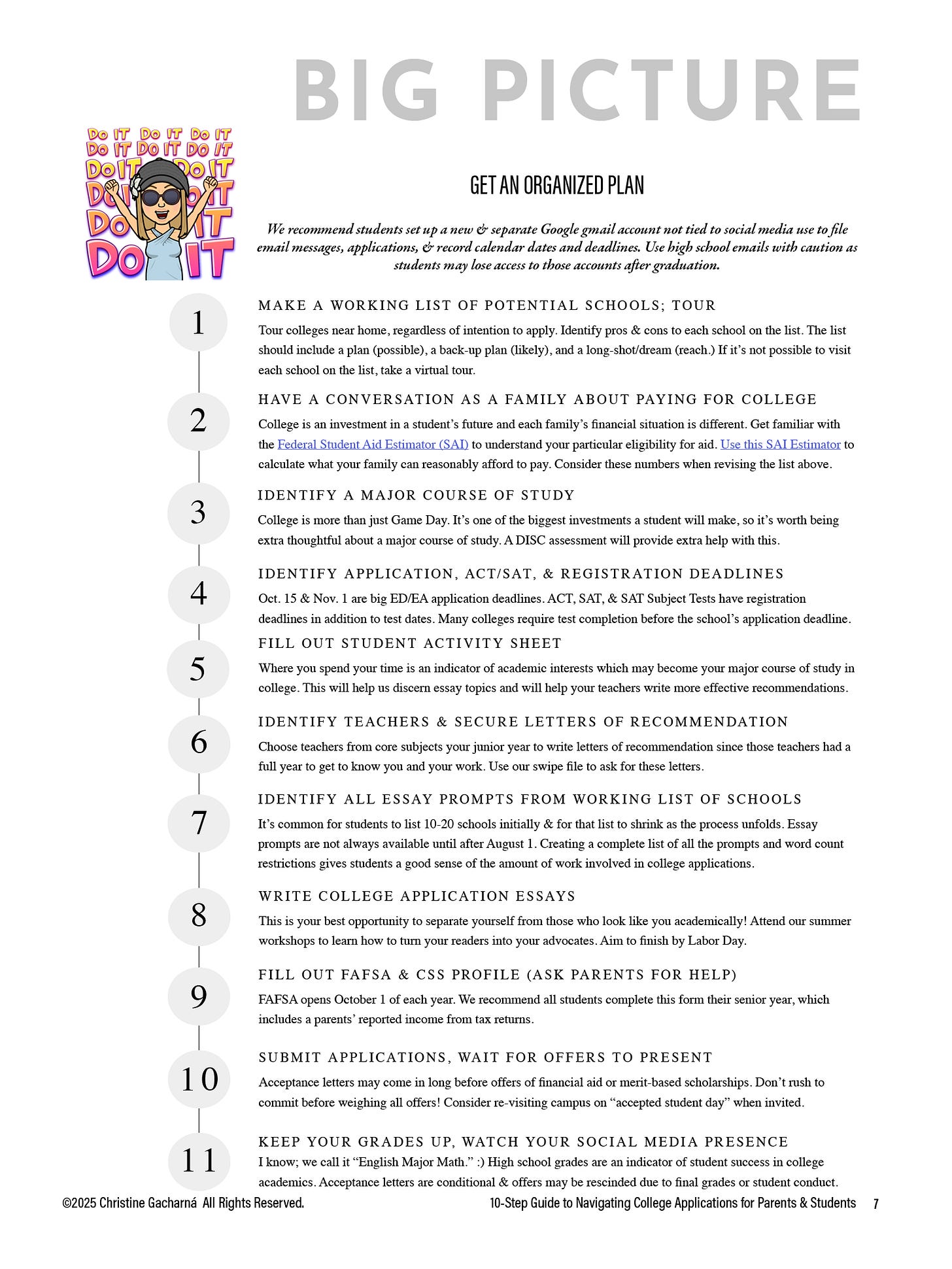To-Do:
Finalize building your college list; carefully cull this list, keeping acceptance rates in mind; see book suggestion below for additional help
Fill in all the details of your Common App
Low-income students: request application or testing fee waivers via high school counselor
Compile a list of all supplemental essays; begin writing
Focus first on compl…




